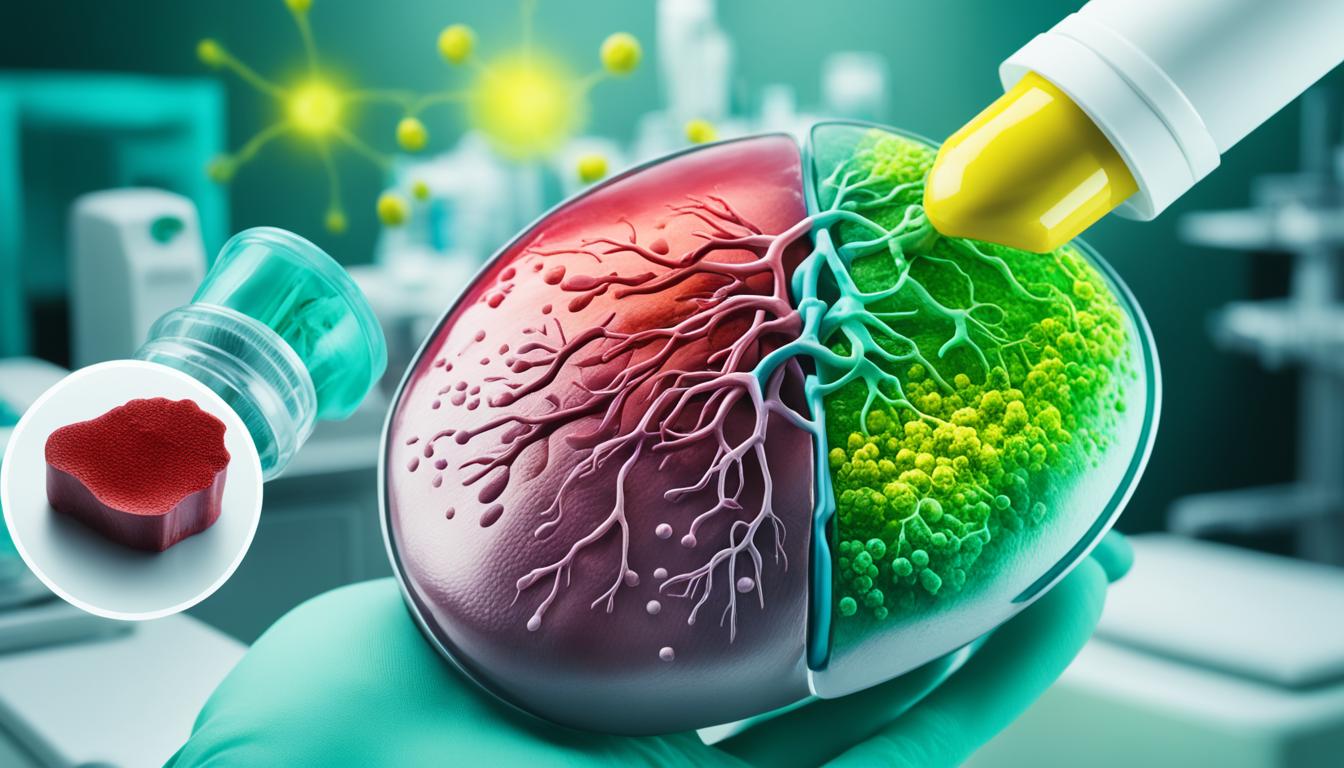Toxic hepatitis is liver damage from toxic substances or drugs. It can cause severe liver issues if not treated early. Symptoms include jaundice, abdominal pain, and feeling sick. New treatments like stem cell therapy are showing hope.
Key Takeaways:
- Toxic hepatitis is liver damage caused by exposure to toxic substances or medications.
- Symptoms of toxic hepatitis include jaundice, abdominal pain, nausea, vomiting, and fatigue.
- Causes of toxic hepatitis include alcohol abuse, certain medications, industrial chemicals, and herbal supplements.
- Diagnosis is based on a thorough medical history, physical examination, liver function tests, and imaging studies.
- Stem cell therapy offers new possibilities for liver repair and regeneration in toxic hepatitis.
Causes and Risk Factors of Toxic Hepatitis
Toxic hepatitis harms the liver due to several reasons. These include too much alcohol, some medicines, and exposure to chemicals. Even some herbal supplements can lead to this condition.
Alcohol abuse often causes toxic hepatitis. Over time, it damages the liver. This happens because the liver has to deal with the effects of too much alcohol, causing inflammation and harm.
Medications are also potential reasons behind toxic hepatitis. Drugs like acetaminophen, antibiotics, and statins can hurt the liver. This is especially true if they’re taken in large amounts or for a long time.
Not only alcohol and medications, but certain chemical substances can affect the liver. Solvents and pesticides at work might lead to liver damage. This is a risk for those who work with these toxic materials.
Using certain herbal supplements increases the chance of liver damage. If the FDA doesn’t regulate them, they might include dangerous elements. These can set off toxic hepatitis in some people.
Some people are more likely to develop toxic hepatitis. This includes those with liver problems before. Conditions like viral hepatitis or a fatty liver make the liver more sensitive to damage.
Common Causes:
- Excessive alcohol consumption
- Medications (acetaminophen, antibiotics, statins)
- Exposure to industrial chemicals
- Use of non-regulated herbal supplements
Risk Factors:
- Pre-existing liver disease
- Genetic susceptibility
Diagnosis and Treatment of Toxic Hepatitis
Doctors first look closely at a patient’s health history. Then, they do a detailed checkup. After this, the patient goes through special tests and scans to check their liver’s health.
They use liver function tests that show how well the liver works. These tests look at certain substances in the blood. Doctors also use images from ultrasounds or MRIs to see the liver clearly. This helps make sure it is toxic hepatitis and not another kind of liver problem.
Treating toxic hepatitis is about getting rid of the harmful substance. It’s also about managing the symptoms well. It’s really important to stop the harm to the liver. If it’s serious, the patient may need to stay in the hospital. There, they’ll get fluids, pain relief, and the right food.
There’s exciting progress in using stem cell therapy for liver repair. This newer way gives hope to those with bad liver damage from toxic hepatitis. Stem cells help grow new liver tissue. This way, patients may get better and be healthier.

